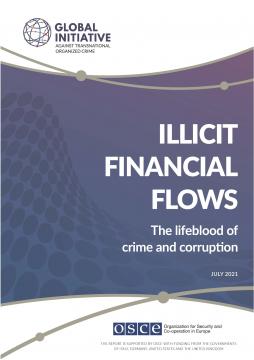Resources
Illicit Financial Flows

The report on “Illicit Financial Flows: the lifeblood of crime and corruption” provides an overview of the vulnerabilities that permit illicit money to be generated and moved in South-Eastern Europe (specifically in Albania, Bosnia and Herzegovina, Montenegro, North Macedonia and Serbia). The report provides analysis on the sources of the problem, as well as on the steps taken in these five countries to address the problem. In addition to reporting approximate monetary values, the report also refers to the impact of IFFs on the economies and societies of the region where possible. Examples of such impacts include depriving the licit economy of resources that are needed for sustainable development; eroding the functioning of criminal justice systems; weakening state institutions; and discouraging the public and private sector from investing in essential infrastructure.
The report was prepared by the Global Initiative against Transnational Organized Crime (GI-TOC) within the scope of OSCE’s Extra-Budgetary project “Strengthening the fight against transnational organized crime in South-Eastern Europe through improved regional co-operation in asset seizure, confiscation, management and re-use”, implemented jointly by the Transnational Threats Department and the Office of the Co-ordinator of OSCE Economic and Environmental Activities.
The views, opinions, conclusions and other information expressed in this document are not given nor necessarily endorsed by the Organization for Security and Co-operation in Europe (OSCE) unless the OSCE is explicitly defined as the Author of this document.
